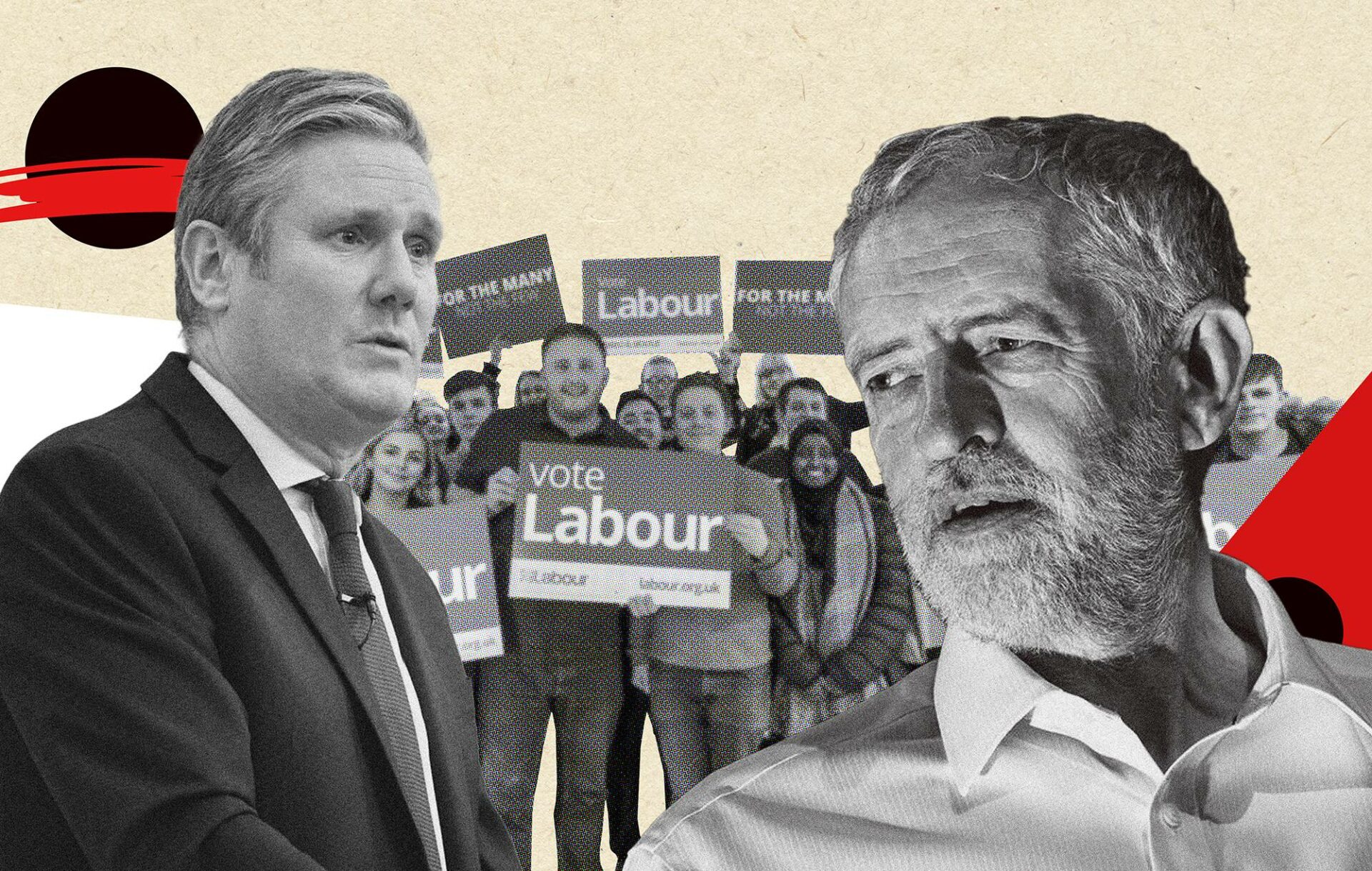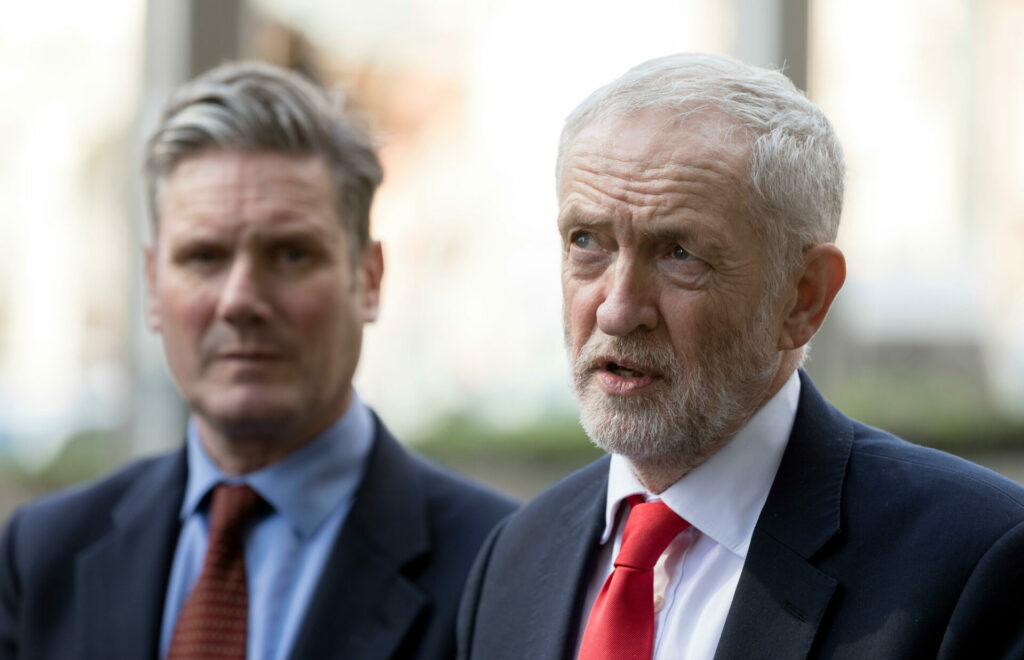Can Labour Win Again with Young People Disillusioned?
Without the empathetic draw of Jeremy Corbyn or inspiring left-wing ideals, the Labour Party is in trouble. Its success — and the future of British politics — will be defined by what its youth, Generation Left, does next
By Simon Childs

For Heather McIntosh, the result of the 2019 general election was like “a really bad breakup, because I’d wake up every morning and have this moment where I hadn’t remembered that it had happened — and then that it had — and I would cry and be so sad. It was genuinely awful.”
During the 2017 and 2019 election campaigns, McIntosh was one of the many millennials who spent hours knocking on doors trying to convince people to vote Labour. Now she’s not even sure if she would vote for them again. How did we get to this point?
A young adult in Britain today hit puberty around the time George W Bush declared “mission accomplished” in Iraq in 2003, sat their A levels some time around the financial crash and entered the job market during the Coalition government’s brutal austerity programme, while the apocalypse of climate change awareness slowly emerged in the background.
The politically minded will have watched a million people march against the Iraq war in 2003, only for the conflict to finally end in 2011. Closer to home, there was plenty more to remember about that year: Occupy took over Wall Street and the City of London in the name of social and economic equality and “real global democracy”, riots broke out in British cities, and UK Uncut picketed corporations to demand that they pay their fair share of taxes. The pessimists will have noted that not much has changed in the intervening ten years.
This is what Keir Milburn, a lecturer in political economy and organisation at the University of Leicester, has termed ‘Generation Left’. The idea is not the cliché that young people are idealistic lefties who will grow old and bitter and conservative in good time. It’s that people who became adults around the time of the financial crash have a shared experience of capitalism — of stagnant wages, burnout, not being able to afford a house and so on — and a set of cultural values which make them a coherent political group with a mutual interest in challenging neoliberalism and conservatism.
For Jamila Squire, now 24, growing up watching an increasingly disastrous set of world events and a succession of seemingly failed protest movements “created this sense that it wasn’t possible to create any kind of change, and that people were banging their heads against the wall and Westminster just didn’t care”.

This generation smashed the Conservative Party HQ during the 2010 Millbank riot in protest at the coalition government’s increase in tuition fees to £9,000 per year, occupied universities and formed the ‘Black Bloc’ that rampaged through London in 2011 — or they watched their older siblings and waited until they were old enough to join in.
The anti-austerity movement ultimately failed. So, when an ageing leftist backbencher who did not support austerity, opposed the Iraq War, and even claimed just £8.70 for ink cartridges on his expenses form one year became the leader of the Labour Party, it provided a new, more formal focal point for young activists. Membership of the Labour Party ballooned from around 200,000 in 2015 under the leadership of Ed Miliband, to over half a million in 2016 under Corbyn.
“I think the promise of Corbynism wasn’t just that there were left-wing policies,” says Squire. “I think it was the sense that he genuinely believed that anyone had the potential to be extraordinary and to create change, and he was really interested in listening to people.”
Corbyn’s leadership was a lightning rod for like-minded people for whom mainstream Westminster politics had previously held little appeal. “It suddenly seemed like there were all of these people that believed these things and they didn’t exist before, but that obviously wasn’t true,” says McIntosh. “There were so many people that must have thought in this way — there was just suddenly, like, a mass group that then represented it and you could actually put a name to it.”
Jess Barnard, chair of Young Labour, was part of Labour before its youth-quake. She joined the party in 2012, when Ed Miliband was Labour leader. She remembers being the youngest person in meetings at that time “by, like, 20 years”. It was, she says, “quite a static party”. The wave of enthusiasm around Jeremy Corbyn changed all that. “You’d be able to meet up with a number of other young members in the pub beforehand, and then go to the meeting together, which is something that we didn’t have before. Oh my gosh, it was brilliant.”
“Jeremy Corbyn genuinely believed that anyone had the potential to be extraordinary and to create change, and he was really interested in listening to people”
Helped by an army of activists, in 2017, Corbyn’s Labour Party shocked political pundits and pollsters who predicted total wipe-out. Labour gained 30 seats and their biggest vote share since 2001, forcing the Tories to form a minority government.
But in 2019, weighed down by infighting, an incoherent position on Brexit, the aggressive right-wing media, and an anti-Semitism scandal, the wheels fell off. Boris Johnson’s Tories romped home with a landslide and the biggest share of the popular vote any party had won since 1979 — largely thanks to the votes of the property-owning boomer generation. The young had mostly voted Labour, but even Corbyn’s biggest supporters had to admit that their electoral project had failed. Corbyn announced the next day that he would not lead the party into another election.
In the subsequent Labour leadership campaign, in order to win the votes of left-wing activists, Keir Starmer mimicked the outgoing Labour leader, heavily implying continuity with the Corbyn project — but without the electoral kryptonite that Corbyn carried with him. After winning, Starmer soon began to mirror Tory tropes, pledging a strategy of flag-waving patriotism. Many on the left began to feel that they had been sold a dummy.
To add to the acrimonious atmosphere, a dossier of emails and WhatsApp messages was leaked, showing how right-wing Labour Party hacks had worked against Corbyn’s chances of victory. One senior official, on seeing the exit poll for the 2017 election showing surprisingly good results for Labour, said it was “opposite to what I had been working towards for the last couple of years”.
“I feel very hurt and betrayed by the Labour Party,” says McIntosh. “Seeing, like, the gleam of what it could be. How that was sabotaged, what it is now.”
All of this leaves the question of what Generation Left does next.
Many of the friends who went to the pub with Barnard have now left the party; in particular, LGBTQ+ and Muslim members who don’t feel listened to by the new leadership about the oppression they face, says Barnard. Just over a year after Starmer’s election as party leader, Labour was losing members at the rate of 250 a day. As a result, “It’s lost its spark,” she says.
“I feel very hurt and betrayed by the Labour Party”
Barnard is working on helping young people get involved with the party, but admits Labour is not always a fun place for that generation to be.
Although the coronavirus pandemic would take the zap out of an electric chair, Barnard thinks her local party made its regular Zoom meetings more uninviting for young activists than necessary. “You couldn’t unmute yourself and they turned off the chat function, so you couldn’t even type something.
“It feels like the leadership is trying to prove that the adults are back in charge and we’re all very serious. And it’s kind of missing the point. We were all really serious about the problems we’re facing and serious about winning power, but we just wanted to do things differently and show that ordinary people can organise for change.”
In 2021, Young Labour had to host a rally outside of the main party conference, after party officials tried to block one of their invited speakers: Jeremy Corbyn.
“We exist in society where a lot of the time we are being dismissed or we are being disproportionately blamed. You read it in the press, you experience it at work, you experience it from union members or your own family, and you hear it from the government when it imposes policies that harm younger people. So if you’re experiencing all of this in your daily life, it’s very hard to then go into [a] space with the resilience to say, ‘I’m gonna experience this again, I’m not going to give up,’” she says.
Why put up with this when you could get involved in climate activism, attend a BLM march, or simply drop out of political activism, get into crypto or do whatever else with your one brief life on this planet? For many, there isn’t an answer.
McIntosh threw herself into a mutual aid group helping vulnerable neighbours during the Covid lockdowns and has attended protests against the government’s Police and Crime Bill — a heavy- handed crackdown on the right to protest — and still believes in making change from the grass roots up. “I think if we keep looking above for change to happen, from whoever’s in Parliament or leading the Labour Party — I have no faith in that, but I have faith in other people.”
But others see deserting Labour as giving the enemy what they want. Most of Squire’s political friends are still party members. “I think there’s a collective sense that it would be a victory for the [right-wing side of the] party if we were all to leave,” she says. “That’s definitely what they want, because having a huge left-wing membership does make their lives quite difficult.”
“There’s a collective sense that it would be a victory for the right-wing party if we were all to leave”
She’s determined that the movement doesn’t fall apart, whether or not people stay in the party. “I don’t necessarily know what the right answer is, but I feel like there was a coalition around Corbynism and for that to split and not have any kind of vehicle for communication would be a total disaster.”
The current Labour leadership appears more interested in appealing to older, more conservative voters in a way that can sometimes place them at odds with the more socially liberal young. Even if it does work, winning elections by placating boomers is a strategy with a definite best-before date. In the meantime, Generation Left could turn to the Green Party, reach for the ejector button by backing independence movements in Scotland and Wales, or turn their attention back to direct-action politics as seen in the rise of Extinction Rebellion.
Generation Left is licking its wounds for now, but the question of where its energy goes next will define the politics of the coming decades.
